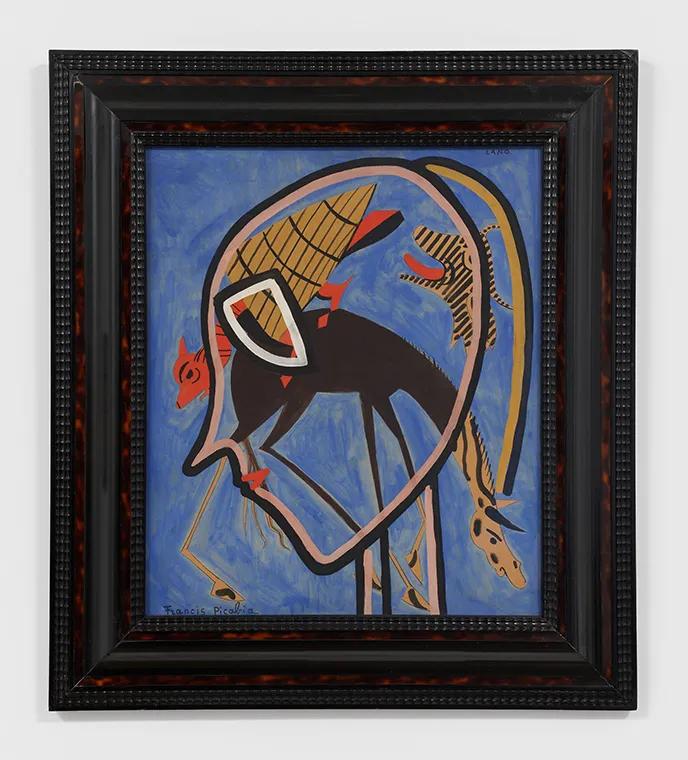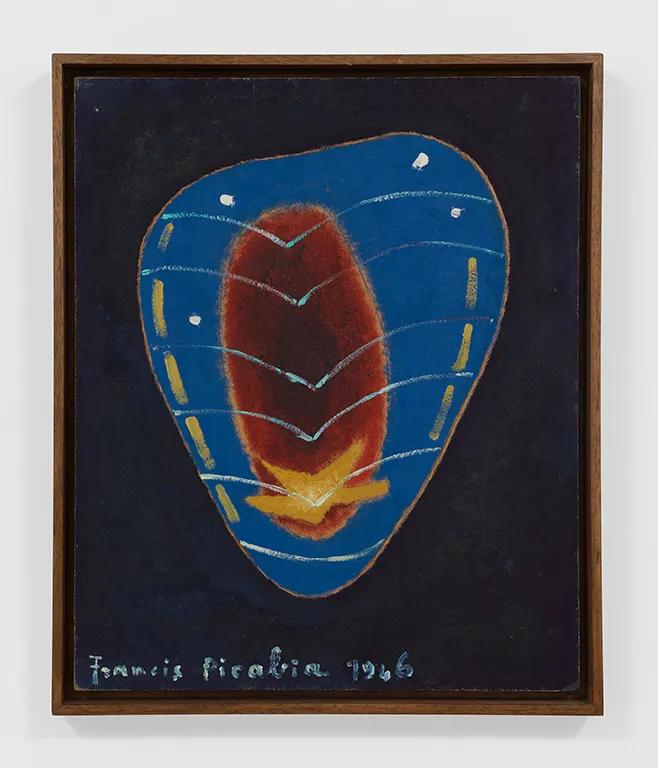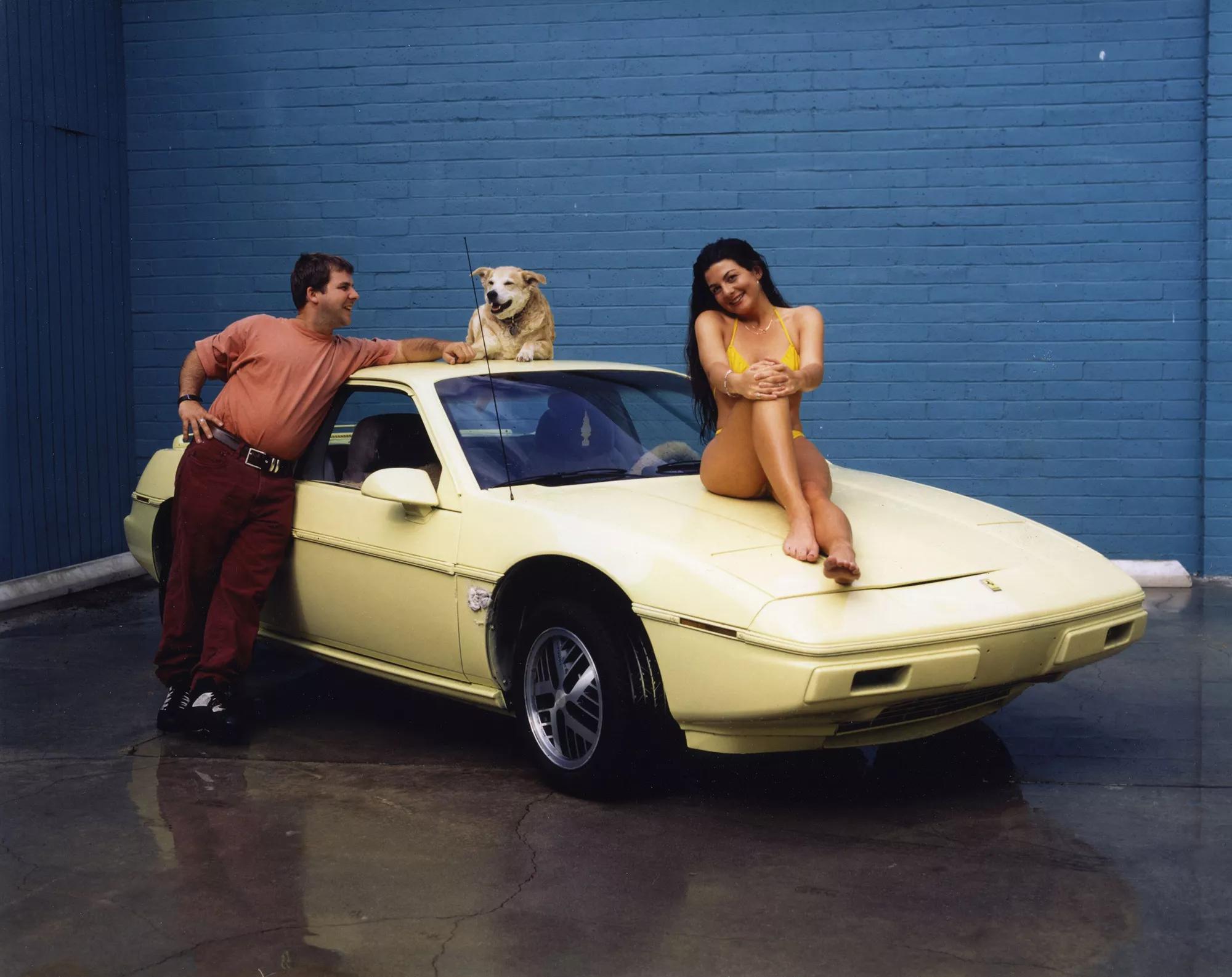
Jason Rhoades
DRIVE II
5 September – 19 October 2024
New York, 22nd Street
‘By going between places, [the car] will generate things. It’ll snowball, take on a mythology and a history, and then at some point it’ll just stop. And that’ll be it, it’ll be a finished sculpture.’—Jason Rhoades (1998) for Artforum
This exhibition is the first to present the entire fleet of Jason Rhoades’ readymade car sculptures. To complement this Duchampian display, a monumental sculpture named in tribute to Francis Picabia, appears alongside a selection of works by the dada modernist. The installation also features a video projection, in which Rhoades drives and discourses on the body of work he dubbed his Car Projects. Recorded in a 1998 interview with the curator Hans Ulrich Obrist, Rhoades explains the relationship of cars to his art (parking is equated with situating a sculpture) and expounds on cars as icons of art history (Marcel Duchamp and Francis Picabia speeded modern art forward with their mechanized abstractions; postmodernism put on the brakes) as well as of aspiration and class (you are what you drive). The radio is tuned to Power 106 FM and as the world streams by to the propulsive hip-hop beat, the romance of cars seems irresistible.
Jason Rhoades was renowned for the driving ambition of his prodigiously imaginative art, as well at times its reckless provocation. Going with the storied flow of L.A. traffic, Rhoades designated the car an extension of the studio: a space in which the artist’s mind can race and wander. However, as a body of work, the Car Projects have not been widely seen or considered within the scope of his art, in part because the sculptures themselves—which make vivid connections to complex human realities—have been largely in storage for decades.
‘I spend hours going to my studio, so I established this extension of my studio, or rather this second space, in my Caprice.’
Jason Rhoades
The uncanny spectacle of five cars in a gallery will be augmented by the bestial display of ‘Fucking Picabia Cars with Ejection Seat’ (1997/2000). Assembled like an adult tinker-toy, from aluminum poles, plywood cutouts, plastic buckets, porn and other materials, a pair of automotive silhouettes appear conjoined and suspended high in the air. Per Rhoades’ specifications, the sculpture will be shown alongside work by Francis Picabia, an artist Rhoades revered for his systematic refusal to be contained or categorized, as well as for his passion for cars. Picabia raced and collected high-powered automobiles. As an artist, Rhoades was keenly attuned to sources of cultural power and weakness. With cartoon gusto, his ‘Car Projects’ make vivid connections to complex human realities, such as our inability to forgo the combustible engine and get past the car. Through its very provocation, Rhoades’ art is always taking us somewhere.
‘DRIVE II’ runs concurrent with the yearlong exploration of Rhoades’ art and car culture taking place at Hauser & Wirth Downtown Los Angeles.
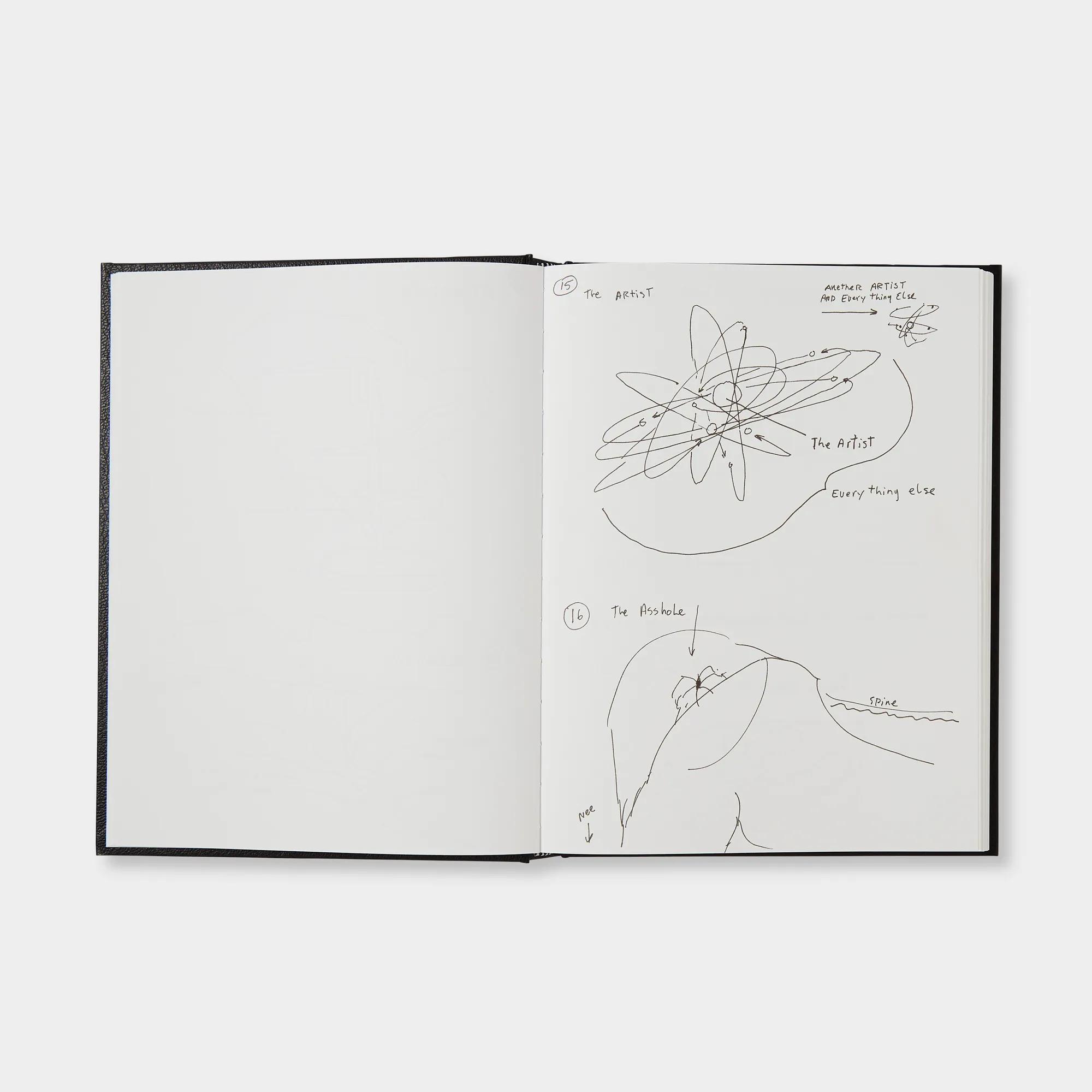
Jason Rhoades: Illastrations
Illastrations is a facsimile of an undated sketchbook of drawings by Jason Rhoades that he and his wife, artist Rachel Khedoori, gifted to their friend and patron Iwan Wirth. A leading figure of the 1990s international art world, Rhoades was a world builder, an outlier. Like his art, the book is a dynamic construction designed to systematically explore and communicate life’s big questions. It serves as a guide to Rhoades’s visionary work: a collection of didactic cartoons, organized by keyword, that illustrate key concepts, materials, works of art, and personal references, including “abstraction,” “curator,” “donut,” “Marcel Duchamp,” “unfair.” Presented in a slipcase and bound in what feels like an art supply sketchbook, Illastrations is an object to treasure, encapsulating the playfulness of a Californian cowboy who never relinquished his sense of punk practicality.

On view at New York, 22nd Street
‘Jason Rhoades. Drive II’ is on view until 19 October.
Related Content
About the Artist
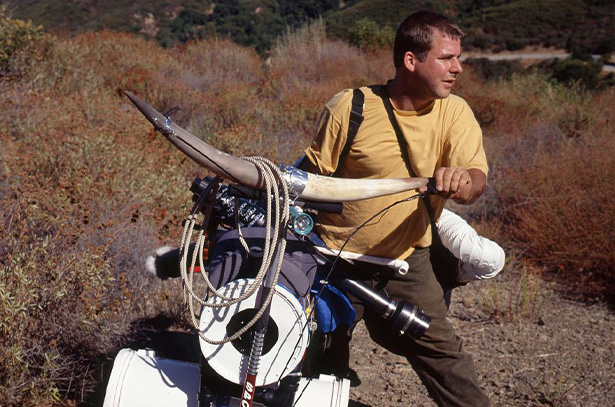
Jason Rhoades
Jason Rhoades (1965 – 2006) was a visionary artist and world builder for whom sculpture and myth were intertwined forms of construction. His epic assemblage installations established him as a force of the international art world in the 1990s, while based in Los Angeles. America was his art’s imaginative subject, which he represented with a provocative sense of irony and materialism, along with disarming humor and authentic identification.
Working on an architectural scale, Rhoades created immersive environmental sculptures that deployed copious quantities of consumer goods (Q-tips, computers, knickknacks), building supplies (plastic buckets, Sheetrock, extension cords), media (video games, hip-hop music, porn) and neon light. Imbued with a barely contained sense of chaos, these works are also highly crafted and surprisingly formal in their composition. Pattern, order, information networks, narrative threads, color and line give shape to Rhoades’ installations as diagrammatic depictions and systems of meaning. He considered art a tool for pursuing life’s big questions and dedicated major works to exploring the act of creation as signified by a garage, the brain, Brancusi’s studio and a penis, among other metaphorical sites. The car was also instrumental to Rhoades’ project as a readymade sculpture, as a conceptual space akin to the studio and as a vehicle for the driving ambition he held for his art. 'If you know my work', he said, 'you know that it is never finished'.
Current Exhibitions
1 / 9












